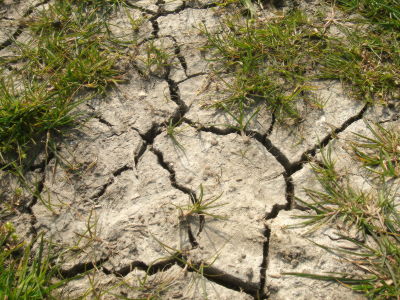Climate change hits India directly, reducing rainfall by 99% & frequent problems such as reduced wheat yield due to heat waves in March, the hottest month in 122 years

In northwestern India, which has been hit by record heat waves since March 2022, rainfall in March has decreased by about 99% from the usual year, and the temperature has reached 40 degrees Celsius, 122 years since the record began. It became clear that it was the hottest March in India.
Delhi records hottest March in 122 years, heatwave to continue --Cities News
Delhi Weather: Delhi Braces For Extreme Heat, May Touch 46 Degrees, Yellow Alert Issued
https://www.ndtv.com/delhi-news/delhi-braces-for-extreme-heat-may-touch-46-degrees-yellow-alert-issued-2923907
Double whammy for wheat growers! Early summers, heat wave conditions shrivel grain & reduce yield --India News
https://www.indiatoday.in/india/story/punjab-haryana-wheat-growers-heat-wave-no-rain-wheat-production-1942239-2022-04-26
Climate change hits India as millions suffer from extreme heatwave
https://www.zmescience.com/science/news-science/heatwave-india-climate-change-27042022/
According to the India Meteorological Department, although it rained as usual from January to February 2022, it became a record light rain after March, and the highest temperature ever observed in Delhi, Punjab, Haryana, etc. That thing. In Delhi, the maximum temperature reached nearly 30 degrees Celsius from the second week of March, and reached a maximum temperature of 40 degrees Celsius on March 30. The average minimum temperature in March in Delhi was 15.26 degrees Celsius, which is the second highest in the history of observation. In addition, the temperature is high throughout India, and the national average maximum temperature in March reached 33.10 degrees Celsius.
Heat waves have continued since the beginning of April, and the highest temperature in Delhi has reached nearly 40 degrees Celsius every day . The India Meteorological Department has issued a weather warning on heat waves, especially warning that the highest temperature in Delhi could exceed the highest ever observed temperature of 45.6 degrees Celsius.

It has been reported that the continued severe rain shortages have severely affected agriculture in Punjab and Haryana. Officials from the Punjab Agricultural Department have reported drought and reduced grain yields, especially wheat yields.
Jaguar Singh, a wheat farmer in Mohari, Punjab, lamented that 'the yield was halved from the previous year,' and complained that 'the government needs to compensate us.' It is said that some farmers use the profits earned from agricultural products to repay their machinery investment, but there are concerns about the deterioration of cash flow due to the drastic decrease in yield.

'The heat wave will have a terrifying impact on India and neighboring countries,' said Hajit Singh, senior adviser to the Climate Change Network, predicting reduced wheat yields and worsening wheat prices due to extreme weather events. ..
Related Posts:
in Posted by log1p_kr







